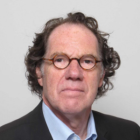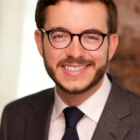This year’s nine eleven commemoration seems to have taken place in a different atmosphere, a different political environment as compared to the previous eight years. It seems like something is in the air, something that has been waiting to come out in the open. The question is how to understand this change.
Nine eleven is not just the date that brings back the horror of that specific Tuesday in 2001. It is not solely the emotional moment to remember the loved ones lost and reflect upon the atrocities that took place in New York; a city that seemed solid as a rock, which trembled under the unprecedented targeted violence and aggression against innocent civilians by those who claim it was their religious duty.
11 September 2010 is different because it is the nine eleven that seems, for the first time in its short history, to come paired with an outburst of anti-Islamic sentiment in various parts of the world. Such demonstrations of anti-Islamic feelings would have been more likely, even to a certain extent more understandable, as an immediate reaction in the aftermath of the actual attack in 2001. If people would have felt anger and frustration with regard to the claim of Al Qaeda that this is and should be the work of true Muslims, than anger geared at the Islamic religion and its followers seems an apprehensible initial reaction. The attacks originated in a Muslim majority state, the perpetrators were protected by an Islamist government, it was framed as a religious duty and induced fear, anger and grief. What would have made sense was an immediate popular reflex that would attack the part of the identity of the senders that they themselves put at the centre of their message; their religion. But it hardly happened, at least not on the scale one might expect. On the contrary, the "Western world" came to the defence of the citizens of Afghanistan, hunting down the Al Qaeda leadership and freeing the people from a repressive regime.
The initial reaction to nine eleven has not been primitive or innate in the above sense of those words. Following the horrible events of 2001, the world seemed to understand that religion may be hijacked by certain minorities and that the vast majority of the citizens, including those in the Muslim majority states, are peace-loving people. The international military intervention in Afghanistan was based on the conviction that the population did not want dictatorship and did not want to live under a repressive Taliban regime. The world could, and did, distinguish between majority and minority opinion. Nuanced analysis prevailed over primary reactions.
Nine eleven 2010 is different, the atmosphere and the socio-political environment in which the commemoration takes place has changed considerably. Criticism of the Islamic religion as a whole is gaining public support, not just in Europe but also within the borders of the principle advocate of religious freedom, the United States. It is therefore relevant to pose the question why, why now? Though a simple question at first glance, it requires a complex, multi-faceted answer.
Is it because of the prevailing impression that Iraq and Afghanistan are military failures? Is it because the press contributes to the image that violence in Islamic parts of the world is on the rise instead of on the decrease? Is it because public support for radical interpretations of Islamic scripture still exists in many Muslim majority states? Is it because Obama's promise of a renewed relationship between Islam and the West, based upon mutual interest and mutual respect, has not yet brought the immediate visible and envisaged results? Is it because counter-terrorism efforts have not proven effective enough in diminishing the threat of violent Islamist extremism, as demonstrated by recent incidents such as the Times Square bomb plot and the Christmas Day bomber?
Whilst nine eleven 2001 did not directly provoke a major outburst of global criticism of the Islamic religion, the prevailing public perception of a lack of adequate and tangible results from counter-terrorism and counter-radicalisation efforts and an invigoration of relations between Islam and the West might have. The dominant images of radical groups in Yemen, Somalia and Pakistan, the continuing insurgency in Afghanistan, the constant violence in Iraq and the Middle East leave many of us with the impression of a discordant and violent part of the world that coincides geographically with what is called the Muslim world.
But this image obviously does not coincide with most of the realities on the ground. Today, like in 2001, the vast majority of people, including those in the Muslim majority states, are simply living their daily lives, trying to make ends meet. These people have worries and concerns, as well as hopes and aspirations for a better future for their children. They long for peace and security. In short; they are peace-loving people.
It is vital that we counter the prevailing perceptions, images and narratives that wrongly portray the status quo. It is time that the world acknowledges that visible and explicit expressions of moderation are essential. Governments and (international) organisations need to invest, on multiple levels and with the involvement of a variety of actors, in counter-radicalisation efforts in order to oppose the appeal and narrative of violent extremism and counter the misrepresentation of Islam and the situation in Muslim majority states as much as that of the West in the Muslim World. The world must appreciate the fact that moderate, peace-loving voices prevail in almost every corner of the world. These voices deserve a platform; they need to be seen and to be heard. To empower them, prioritisation in governmental policies and significant investments are needed. The world is waiting.









